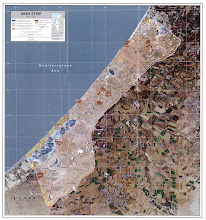From "Perspective," The Freeman, November 2009:
On November 9, 1989, the Berlin Wall effectively ceased to exist. Remember the sequence: Communist Hungary started letting people pass into Austria and to freedom. Captives of the Soviet bloc left in droves. East Germans, too—thousands of them. The Hungarian government tried to stanch the flow, but the dam had been breached. With one dictator having resigned, a panicky East German regime began making concessions, hoping to mollify the people. They would not be placated. Thousands—and in one case, a million—took to the streets, shouting, “We want out!” Things were getting out of hand. So, on November 9, the government fumblingly announced it would lift travel restrictions to West Berlin and West Germany. It was all over but the demolition.
I don’t know why it seems so much longer ago that we saw those inspiring celebrations, when East Berliners, joined by their countrymen from the western side, danced on the wall while others whacked at it with axes and sledge hammers. The crowds, the singing, the joyful cries of “Freedom!”, the sections of wall toppling—I remember watching the scenes on television with my then-six-year-old, Jennifer. If you can watch them on YouTube today without tearing up, I don’t know what to say.
It’s hard to believe that today’s 19-year-olds were born into a world without a Berlin Wall and 17-year-olds were born into a world without the Soviet Union. When my generation was growing up, the Iron Curtain and USSR seemed like permanent fixtures of life.
Yes, we really did have air-raid drills in school. (Looking back, I can see they were insidious, ridiculous propaganda stunts.) Some of us wished, at most, for what was called peaceful coexistence. Others thought “we” could roll “them” back. War—which a few, amazingly, actually welcomed—would have been catastrophic beyond imagination. We dared not hope for a bloodless dissolution of totalitarianism. Yet that, more or less, is what we got.
Those of us who believe in full individual liberty have been dismayed to learn that revulsion with dictatorship does not equate to a wholehearted embrace of freedom. None of the former Soviet-bloc countries has thoroughly foresworn state-capitalist welfarism, and some have traveled only a short distance along the road from serfdom. Central planning is dead as an ideal, but the regulatory state lives, as does what Thomas Szasz calls the Therapeutic State. This is disappointing, but it would be difficult for a resident of the United States to criticize others for failing to resist overbearing government. The longing for security, combined with the absurd notion that only ignorant and force-wielding bureaucrats can provide it, dies hard.
The fall of the Iron Curtain has been heralded as the failure of socialism, but this is a more complicated matter. Strictly speaking, there has been much less socialism in the world than it might appear since Lenin gave it up for the New Economic Policy in 1921. Remember, Marx envisioned the abolition of the market, including money and exchange. The economy was to be centrally planned—literally. But when the Bolsheviks tried it, they ended up, as Trotsky said, “staring into the abyss.” Lenin was savvy enough to back away from oblivion and reintroduce aspects of the market, including a gold ruble. What followed for the next seven decades was a heavily bureaucratized, de facto quasi-market economy, existing in a world of prices in which The Plan was adjusted ex post to reflect reality and black-market “corruption” kept things going. Ludwig von Mises could not have been surprised.
Such an economy was doomed to fail, but perhaps with a little less intervention and a dollop of political freedom, it might have muddled through a bit longer. The market can put up with a lot of harassment, which means people can resourcefully get around a lot of government obstacles when they want to. Look at the U.S. economy.





1 comment:
and with the collapse of the Soviet Union the search for the next enemy commenced. They had a bit of a false start with Milosovic and Saddam but the final choice of Islamofascists was inspired. This one can run and run.
Post a Comment